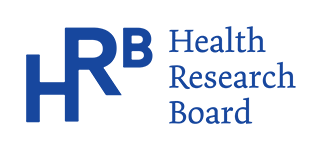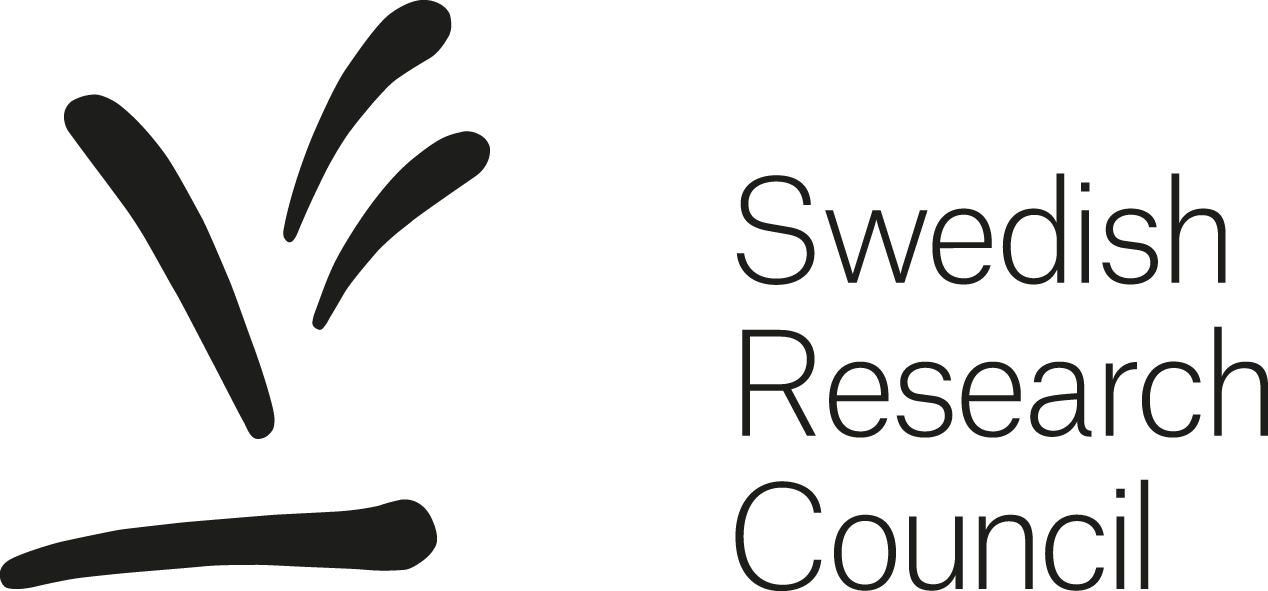Member-only content is available on this page. Please log in to view this content.

Search
873 item(s) found

REMAP-CAP supplemental funding
Supplemental funding for the HRB-Clinical Trial Network in Critical Care to support their participation in an international clinical trial of repurposed therapeutic interventions in response to COVID-19.
Budget: € 400,000

Intellectual Disability Supplement to the Irish Longitudinal Study on Ageing
Supplemental funding to conduct a carry-on survey of the IDS-TILDA cohort with intellectual disabilities on the impact of Covid-19 on their lives. Resulted in a report to the Department of Health and Health Services Executive.
Budget: €60,200

Research Collaborative in Quality and Patient Safety COVID-19
Support for research projects with knowledge users and academic researchers collaborating to focus on QPS research questions that are determined by the documented needs of the Irish health care system. 2020 call focused on Covid impacts.
Budget: € 500,000
Eligibility: Applications should be made on behalf of a team which is made up of researchers and knowledge users. The applicant team should designate a Lead Applicant from the research team and the knowledge user team.

Special support to research projects on the impact of the COVID-19 pandemic on hate crimes and violence and hate speech
Funding of initiatives that allow the production and dissemination of knowledge and research actions on crimes of hate incitement, violence and hate speech in the aftermath of the pandemic.
Budget: € 200,000
Eligibility: Higher education organisations and their institutes, State Laboratories and other public research institutions, Scientific societies or non-profit scientific associations, Public or private non-profit institutions.

COVID-19 Focus Funding: Exploiting Spatial Data as a Basis for Decision-making as Part of Pandemic Control
With its COVID-19 Focus Funding, the German Research Foundation (DFG) has developed a new funding opportunity designed to enable scientists to address especially urgent research questions requiring rapid answers. The projects can be used as preparation for subsequent larger-scale projects.
Funding will be provided for the development and demonstration of innovative and creative approaches to data evaluation for a detailed spatio-temporal analysis of infection events. The aim should be, for example, to establish the basis for early detection of outbreaks (also on a local scale) or evaluate prevention and containment measures. Projects can either use innovative approaches to analyse pandemic events to date or set out to develop monitoring systems. In both cases, the use of various official, commercial or freely accessible data sources is conceivable, including mobile phone data, social media data, data from health authorities, behavioural and survey data etc.

COVID-19 Focus Funding: Education and Corona – The Impact of the Coronavirus Pandemic on Educational Processes in the Life Course
With its COVID-19 Focus Funding, the German Research Foundation (DFG) has developed a new funding opportunity designed to enable scientists to address especially urgent research questions requiring rapid answers. The projects can be used as preparation for subsequent larger-scale projects.
The focus of the call is to conduct a secondary analytical investigation of educational processes in the life course and how these educational processes are organised. The aim is to analyse pandemic-related influences on education and look at the implications in terms of future developments (e.g. social inequality).

COVID-19 Focus Funding: Aerosol Particles and their Distribution
With its COVID-19 Focus Funding, the German Research Foundation (DFG) has developed a new funding opportunity designed to enable scientists to address especially urgent research questions requiring rapid answers. The projects can be used as preparation for subsequent larger-scale projects.
Funding under this call is available for projects dedicated to answering open and pressing questions on the formation of aerosol particles during breathing, speaking, coughing, sneezing, as well as their evaporation kinetics and spreading dynamics (turbulent mixing) in rooms. Furthermore, the call intends to address the efficient removal of aerosol particles from indoor air, the infectiosity of virus-transmitting aerosols and the inactivation of viruses in aerosols via multiphysics approaches (radiation, charging, temperature, etc.) as well as the transport and deposition of aerosol particles in the airways.

COVID-19 Focus Funding: SARS-CoV-2 Sequencing Projects
With its COVID-19 Focus Funding, the German Research Foundation (DFG) has developed a new funding opportunity designed to enable scientists to address especially urgent research questions requiring rapid answers. The projects can be used as preparation for subsequent larger-scale projects.
In this call, the DFG is inviting proposals for SARS-CoV-2 sequencing projects. Funding under this call is available for projects in the context of SARS-CoV-2 infection whose objectives can only be achieved with the use of sequencing technology. These virus and host-specific sequencings are intended to contribute towards a better understanding of infectiousness and the spread of the infec-tion process as well as the genetic determinants of the immune response and host susceptibility, taking defined clinical patterns and vulnerable groups into consideration.
The focus is on quickly generating (sequencing) data, which are made publicly available.

COVID-19 Focus Funding: Measures to Prevent Infection in Social Settings and Population Groups
With its COVID-19 Focus Funding, the German Research Foundation (DFG) has developed a new funding opportunity designed to enable scientists to address especially urgent research questions requiring rapid answers. The projects can be used as preparation for subsequent larger-scale projects.
In this call under COVID-19 Focus Funding, the DFG is inviting proposals on measures to prevent infection in social settings and population groups. In the absence of widespread vaccination or effective medicines against COVID-19, protection against infection currently relies on implementing measures to change people’s behaviour and on changes to social norms. The acceptance, feasibility, implementation as well as the effectiveness of the measures vary among social settings and different group of populations. The impact of these barriers against becoming infected in social settings is unclear.

COVID-19 Focus Funding: Immunity, Host Susceptibility and Pathomechanisms of SARS-CoV-2 Infection
With its COVID-19 Focus Funding, the German Research Foundation (DFG) has developed a new funding opportunity designed to enable scientists to address especially urgent research questions requiring rapid answers. The projects can be used as preparation for subsequent larger-scale projects.
The purpose of this call is to address urgent, unresolved questions on immune response, host susceptibility and the infection mechanisms and pathomechanisms of SARS-CoV-2. Projects must be hypothesis driven and evidence based. To ensure that projects can get underway quickly, it must be clear in the proposal that the necessary methodological prerequisites are in place and any model systems or patient samples required are available at the start of the project. It must also be clear from the proposal how the newly acquired knowledge will contribute to a better understanding of the infection process and thus the concrete management of the current crisis. Applicants should also explain how the research results can lead to further research projects.

COVID-19 Focus Funding: Impacts of the Coronavirus Pandemic in the Global South: Health Systems and Society
With its COVID-19 Focus Funding, the German Research Foundation (DFG) has developed a new funding opportunity designed to enable scientists to address especially urgent research questions requiring rapid answers. The projects can be used as preparation for subsequent larger-scale projects.
With this subject the DFG is highlighting the countries and regions which have been particularly affected by the impacts of the pandemic due to major social dis-parities, a relatively weak economy, a high degree of informality, a lack of social security and overbur-dened health systems.

Applied Welfare Research 2021
The call will give researchers with ongoing project grants the opportunity to supplementary research related to the current pandemic. An additional grant aims at supplementary data collection, analyzes and syntheses with a focus on how the pandemic has affected the issues that the project focus on.
Budget: € 1,100,000
Eligibility: Eligibility based on previous financing within the programme.

Research on disability 2021
Research may examine various conditions and support measures for people with disabilities and should be linked to the effects and consequences of the COVID-19 pandemic.
Budget: € 4,500,000
Eligibility: Approved organisations, project leader must be PhD.

Increased Knowledge on Elderly Care 2020
Sustainable health and welfare systems are central to society´s preparedness for future challenges. In elderly care, exposed shortcomings have had major consequences for the elderly. The problems are found at both the system, organizational and practical levels.
Budget: € 1,230,000
Eligibility: Approved organisations, Project Leaders must be PhD

Urgent grants 2020
The purpose of the urgent grants was to provide the opportunity to collect data and research materials of urgent nature, to ensure the future availability of research. Researchers within Forte’s areas could apply for funding for data collection linked to the corona pandemic.
Budget: € 1,600,000
Eligibility: Approved organisations, Project Leaders must be PhD

Syntheses of working life research 2020
The current Covid-19 epidemic is affecting working life in a very tangible manner with consequences for individuals, companies, the public sector and society at large. The consequences need to be highlighted from various perspectives.
Budget: € 1,000,000
Eligibility: Approved organisations, Project Leaders must be PhD

Research within The welfare’s quality, organization and processes initiative
Within the framework of Forte's initiative Welfare's quality, organization and processes, researchers with ongoing funding were given the opportunity for additional funding to link their research to the pandemic, and thus contribute to knowledge about sustainable welfare systems during a crisis.
Budget: € 600,000
Eligibility: Based on previous financing within the programme.

Corona perspective in the annual open call 2020
In the annual open call 2020, Forte opened up the possibility for applicants to adapt their applications based on the ongoing pandemic.
Budget: € 5,500,000
Eligibility: Approved organisations, Project Leaders must be PhD.

Fast-track call for 6-month co-funding
The Luxembourgish research community, including FNR, has created a COVID-19 Task Force in order to coordinate response activities. As a part of the Task Force’s activities, the FNR is launching a rapid call to provide initial (co-)funding for supporting both short-term projects and starting phases of long-term projects that will address the current and future challenges of COVID-19.
Research submitted to this call is open to all research domains and disciplines and must be aligned with the WHO’s Coordinated Global Research Roadmap: 2019 Novel Coronavirus (March 2020 version). Of particular interest is also the development and use of Text and Data Mining techniques that can help to answer high-priority scientific questions related to COVID-19, such as those presented in the COVID-19 Open Research Dataset Challenge (CORD-19).
Eligibility: The call is open to all PIs fulfilling the FNR requirements for PIs, and is also open to collaborations with companies – please consult Luxinnovation for more info on the potential support of companies.
Budget: € 2,640,000

Flash Call COVID-19
This call from the French National Research Agency (ANR) is a multidisciplinary call for proposals with an accelerated process of evaluation and selection on COVID-19 that aims to rapidly support the scientific communities. It is targeted on priorities identified by the WHO, including epidemiology, physiopathology, prevention, ethics, and social science and humanity.
Budget: € 17,600,000
Eligibility: Applicants from universities, research performing organisations, and the private sector.

RA-Covid-19
This call for proposals was based on the principle of knowledge acquisition with an application of results, methods or techniques within 3 to 12 months or immediate collection of specific data. Open call during 6 months. 128 projects funded.
Budget: € 14,600,000
Eligibility: Public or private research laboratories.

Resilience Covid-19
Its objective was to rapidly launch short-term projects taking into account the new developments of the pandemic. 45 projects funded.
Budget: € 3,400,000
Eligibility: Public or private research laboratories.

Generic call for proposals
The ANR's 2021 Action Plan also includes a general priority "Covid-19" throughout the 2021 Generic Call for Projects (AAPG 2021). Complementary to the short projects financed by the specific calls, this will allow the development of larger projects over a period of 3-4 years.
Eligibility: Public or private research laboratories.

Agile Research and Innovation Response to COVID-19
UKRI ran an open call for project submissions from April until December 2020. Applicants were permitted to submit applications of high impact research and innovation proposals which could generate impact towards issues arising from the COVID-19 pandemic.
Budget: Almost £ 200,000,000
Eligibility: As per standard UKRI eligibility rules. Inclusive of business, academic organisations, NHS trusts etc.

Research environment grant for follow-up studies of COVID-19 vaccines
It gives researchers the opportunity to collaborate nationally to conduct follow-up studies of COVID-19 vaccine that are justified by the needs of health and medical care and that contribute to a permanent infrastructure for future follow-up studies. The call is part of the national research programme.
Budget: 100,000,000 Kr
Eligibility: Individual applicant, with a clinical position, connected to a Swedish administrating organisation.
